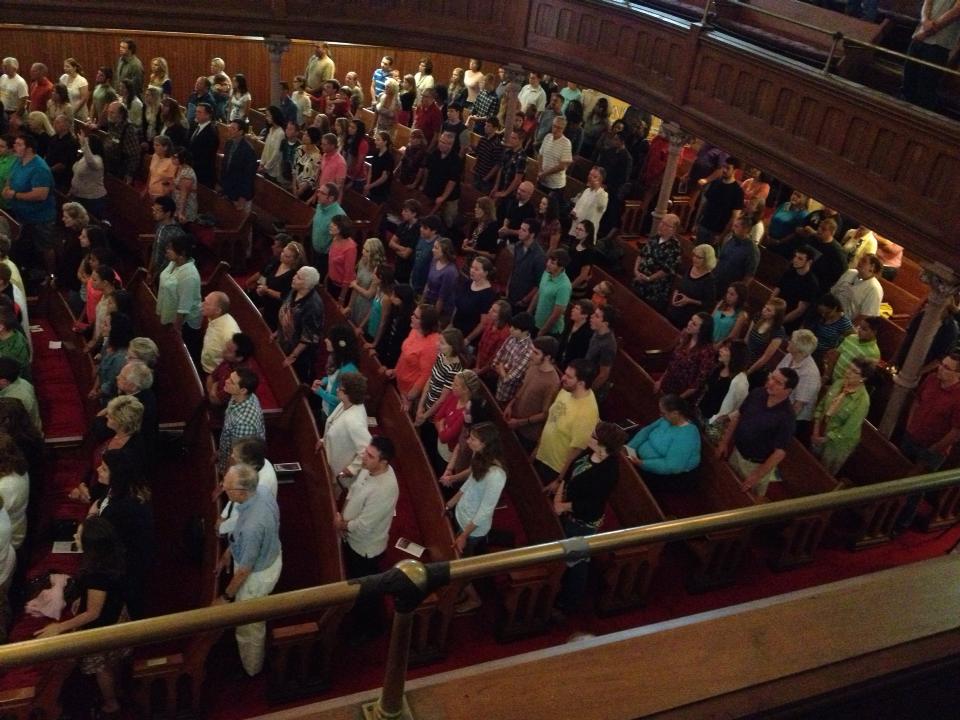All United Methodist individuals still have the right to submit petitions to our denomination’s highest governing authority, the global General Conference which meets once every four years.
As documented earlier, theologically liberal activists proudly devoted to “any means necessary,” Golden-Rule-rejecting tactics made sure that the last General Conference, held in Tampa in 2012, was historically unproductive and dysfunctional.
One of the things that was accomplished at that gathering, at least in the thinking of most of those who were there, was ending the long-standing practice of allowing any United Methodist individual to submit a petition for consideration at General Conference.
Proponents of such a move argue that this may make future General Conferences more productive by decreasing the total number of petitions to be considered and that an individual’s petition should first be vetted by another body, such as an annual conference session or local church council (who would retain the right to petition General Conference), before being presented to General Conference delegates.
Opponents of such limitations argue that given the chasm that already separates much of the denominational establishment from the people in the pews, it is very important to preserve this relatively clear and simple mechanism through which grassroots individuals can have their concerns heard at the highest level of our church.
The likely practical effect of banning individuals’ petition submissions would be to make the influence of the main beneficiaries of our denominational status quo, the general agencies (who together routinely submit hundreds of petitions to each General Conference), even more powerful in shaping the direction of General Conferences. Contrary to popular mythology, the number of petitions under consideration at the 2012 General Conference was actually about 25 percent fewer than the previous General Conference, and the total number of General Conference petitions has been greatly declining since 2000. And while ban supporters point out that silencing individual petitions would not prevent individual United Methodists from seeking to have their annual conferences endorse their petition to send on to General Conference, general agency representatives have not been shy in the recent past in abusing their power to sometimes heavy-handedly quash such grassroots petitions at the annual-conference level when these petitions have challenged the agencies’ liberal agendas on issues like abortion.
In any case, here’s what happened. The liberal-dominated Commission on the General Conference submitted a petition to the 2012 General Conference that would have amended the UMC Book of Discipline to end the right of individual church members to submit their own petitions to future General Conferences. The record shows that this petition went nowhere in its legislative committee, being defeated 57-1 (likely in an omnibus motion).
However, the issue came up again in the plenary session of the final General Conference day. During a discussion of Report #6 from the General Council on Finance and Administration (GCFA), an explicitly labeled “Non-Disciplinary” petition detailing the continued funding of the apportionment-derived General Administration Fund, the Rev. Debbie McLeod of Florida arose to make a motion (technically an amendment to an amendment) “insert the language of” the aforementioned petition into GCFA Report #6. McLeod is a liberal who was observed standing in solidarity with shrill pro-homosexuality protesters disrupting the 2008 General Conference. Along with other arguments, she urged a collective punishment of depriving millions of United Methodist individuals of their right to directly petition General Conference because of two United Methodists (who she snarkily identified as “individuals who claim to live within the bounds of the Florida Annual Conference”) who had each submitted dozens of petitions, rather than offering a less drastic response. After some debate, the McLeod Amendment passed in a relatively close vote.
But the record still shows that the petition to actually amend the Book of Discipline (rather than to amend some report outside of the Discipline), was not adopted at General Conference, and was not even properly considered in plenary session. The relevant section (¶509) of the latest, 2012 edition of the Discipline still says that “Any organization, clergy member, or lay member of The United Methodist Church may petition the General Conference…..”
So I recently asked the Rev. Fitzgerald Reist, the longtime Secretary of the General Conference, for clarification. He responded with the following statement, which I post here with permission:
The language of the petition does not appear in The Book of Discipline 2012 because The Book of Discipline 2012 was not amended. The language adopted limiting who could submit petitions to the General Conference only amended a report, not The Book of Discipline of The United Methodist Church. Consequently any United Methodist, lay or clergy, may submit petitions to the 2016 General Conference.
It should be kept in mind that in making such determinations, Reist’s job is not to declare what he or anyone else may wish for General Conference policies to be, but rather to simply make clear what General Conference policies actually are.
Bottom line: since the McLeod Amendment did not come through the proper avenue for changing binding church law, all individual members of our denomination still have the right they have long had to submit petitions to General Conference.





Comment by JonMarc on October 11, 2013 at 12:44 pm
test